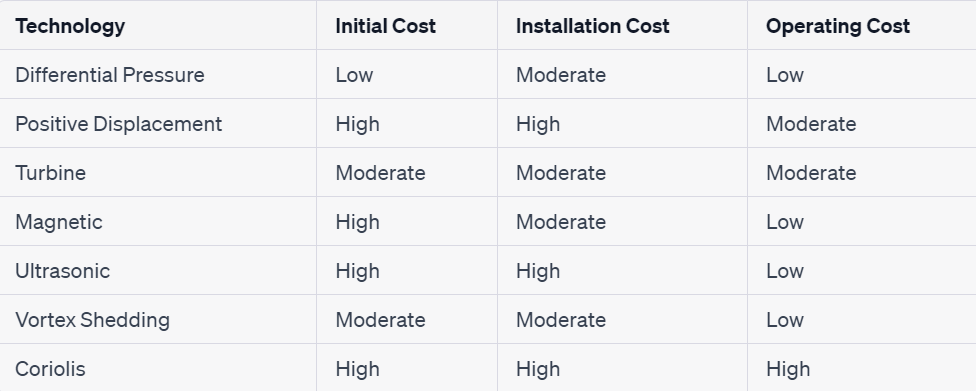Flowing into the Future: Exploring the Potential Benefits of Flow Meter Technology
- ADMIN

- May 8, 2023
- 3 min read
Introduction:
Flow meter technology has come a long way over the years, evolving from simple mechanical devices to advanced electronic sensors capable of measuring flow rates with a high degree of accuracy and reliability. As industry and research continue to demand more precise and efficient methods of measuring flow, flow meter technology is poised to make significant strides in the years ahead. This article will explore the future directions and potential benefits of flow meter technology for industry and research, highlighting the latest advancements in accuracy, efficiency, and reliability.
Advancements in Flow Meter Technology:

One of the most significant advancements in flow meter technology is the use of digital sensors and smart devices to provide real-time flow data. These devices can be integrated into existing networks to provide continuous monitoring of flow rates and enable operators to make informed decisions about process control and optimization. Other advancements include the development of new materials for sensors and probes, which can improve accuracy and reduce drift over time, and the integration of advanced algorithms and signal processing techniques to improve data quality and reduce noise.
Industry Applications:
Flow meter technology has a wide range of applications in industry, from process control and monitoring in chemical and pharmaceutical manufacturing to water management and irrigation in agriculture. By providing accurate and reliable data on flow rates, flow meter technology can help operators optimize processes, reduce waste, and improve product quality. In the oil and gas industry, for example, flow meter technology is used to measure flow rates and optimize production, while in the food and beverage industry, it is used to ensure consistent quality and prevent contamination.

Research Applications:
In research, flow meter technology is used to measure flow rates in a wide range of applications, from biomedical research to environmental monitoring. For example, flow meters are used in medical research to measure blood flow rates in vivo, while in environmental research, they are used to measure water flow rates in rivers and streams. By providing accurate and reliable data on flow rates, flow meter technology can help researchers better understand the underlying processes and develop more effective solutions to complex problems.
Future Directions:
Looking ahead, the future of flow meter technology is bright. Advancements in digital sensors, materials science, and signal processing are expected to continue to improve accuracy and reliability, while new applications in emerging fields such as nanotechnology and biotechnology are likely to emerge. Other potential benefits of flow meter technology include increased efficiency, reduced costs, and improved safety. For example, by providing real-time data on flow rates, flow meter technology can help operators optimize energy usage and reduce waste, while also improving worker safety by identifying potential hazards.

Conclusion: Flow meter technology is a critical tool for industry and research, providing accurate and reliable data on flow rates that can help operators optimize processes, reduce waste, and improve product quality. The future of flow meter technology is bright, with ongoing advancements in digital sensors, materials science, and signal processing expected to drive continued improvements in accuracy, efficiency, and reliability. By embracing these advancements and investing in new applications and research, we can unlock the full potential of flow meter technology and realize the benefits it has to offer. Recap of Key Points: Flow meter technology has evolved from simple mechanical devices to advanced electronic sensors capable of measuring flow rates with a high degree of accuracy and reliability. Advancements in digital sensors, materials science, and signal processing are expected to continue to improve accuracy and reliability, while new applications in emerging fields such as nanotechnology and biotechnology are likely to emerge. Flow meter technology has a wide range of applications in industry and research, from process control and monitoring in chemical and pharmaceutical manufacturing to water management and irrigation in agriculture. By providing accurate and reliable data on flow rates



Comments